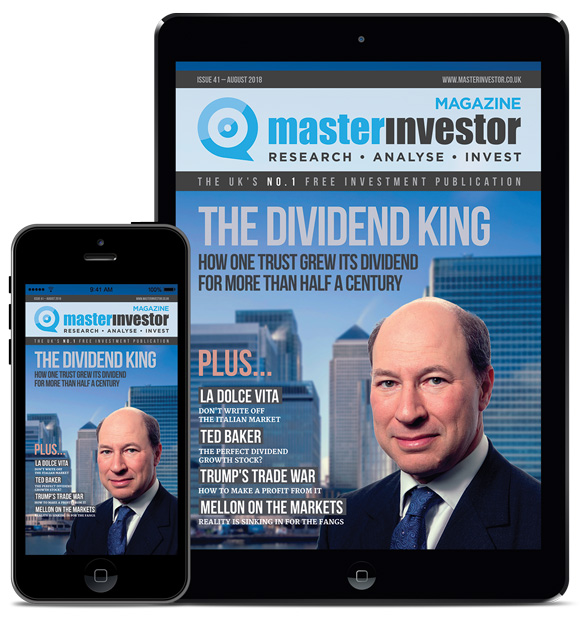2 international dividend shares for a ‘no-deal’ Brexit


Never miss an issue of Master Investor Magazine – sign-up now for free! |
The government recently released the first batch of a number of documents that are intended to help businesses and individuals to prepare for a ‘no-deal’ Brexit. This suggests that the prospect of a ‘no-deal’ Brexit is increasing, and that there is now a realistic chance of it happening.
A failure to reach an agreement with the EU could lead to greater uncertainty for the UK economy. Although the exact impact of it is unknown, it may put further pressure on the UK’s GDP growth rate. Interest rates may be cut in order to provide a stimulus, while UK-focused companies could struggle in the short run. As a result, buying internationally-focused shares with high dividend yields may be a worthwhile move.
Brexit prospects
Of course, there is no way of knowing whether a deal will be struck between the UK and EU. Nor does anyone know exactly how either scenario (‘deal’ or ‘no-deal’) will impact upon the UK economy in the short run. One likely outcome in a ‘no-deal’ scenario could be greater uncertainty among businesses, investors and consumers. This could lead to a fall in the UK’s GDP growth outlook, which is already relatively low at 0.5% for 2019.
A weaker pound may cause inflation to spike. Even so, the Bank of England may maintain an aggressive monetary policy stance, with the recent rise in interest rates providing them with scope to cut rates should GDP growth decline. This could make dividend shares more appealing to investors, with stocks that are less reliant on the UK economy than their peers potentially offering greater resilience when it comes to dividend payments.
Income potential
Two FTSE 100 dividend stocks which have significant international exposure are GlaxoSmithKline (LON:GSK) and HSBC (LON:HSBA). The two companies are expected to yield 5% and 5.7% in the current year, which is ahead of the FTSE 100’s dividend yield of around 3.8%.
Dividend growth could be ahead for GlaxoSmithKline after having frozen dividends per share from 2014 onwards. Its recent update showed that it has been able to deliver sales growth in all three of its operating divisions, while also growing margins. It recently announced a major restructuring programme which could lead to a more efficient and lower-cost business model over the medium term. Alongside the potential from its pipeline and in its consumer healthcare division, this could boost its earnings and dividend growth potential.
HSBC’s dividend growth rate may also improve over the coming years. Its decision to pivot to Asia could prove to be a sound move. In China alone, the size of the middle-class is forecast to increase by 850 million between 2009 and 2030. The country is moving further towards a consumption-led economy, with demand for banking products and services likely to rise in tandem with increasing consumer demand. With the bank investing heavily in Asia, it could produce a rising bottom line.
Outlook
Clearly, Brexit could end up with a favourable deal for the UK which catalyses GDP growth. Similarly, a ‘no-deal’ Brexit may have a positive impact on the UK economy, with the fear and uncertainty at the present time proving to be unfounded. But with the potential risks that may be ahead, international dividend shares could become increasingly attractive for long-term investors.
Comments (0)